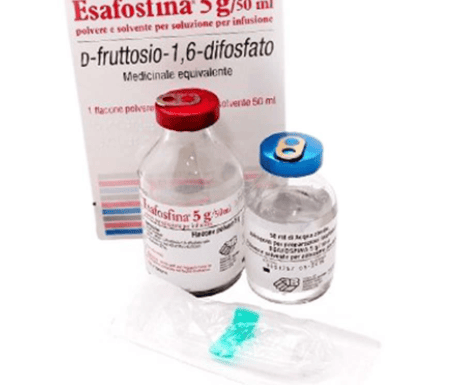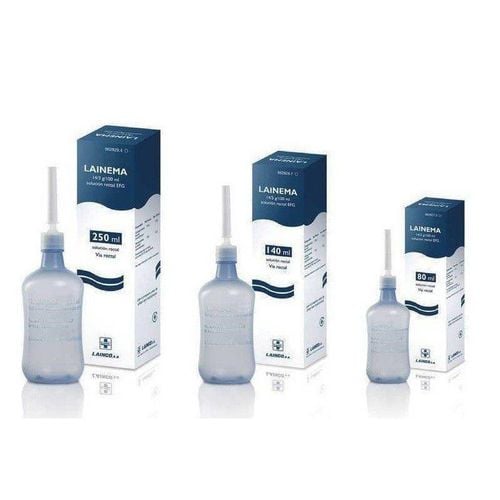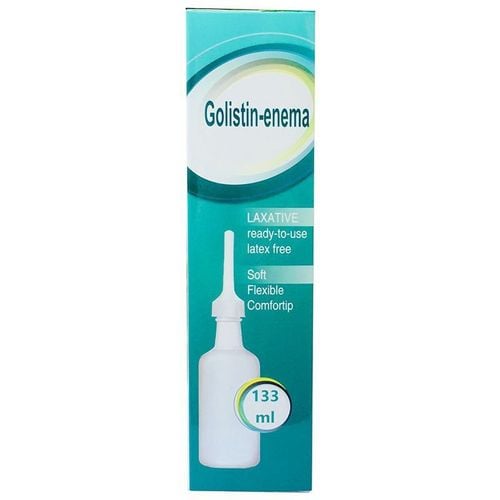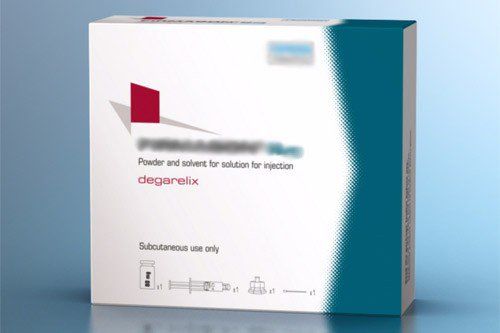This is an automatically translated article.
The article was professionally consulted by Doctor Department of Medical Examination & Internal Medicine - Vinmec Hai Phong International General Hospital
Irritable bowel syndrome is a functional gastrointestinal disorder characterized by abdominal pain and altered bowel habits with no evidence of physical damage to the gastrointestinal tract with a frequency of at least one days per week for the past three months.
1. Diagnostic criteria for irritable bowel syndrome
The Rome III (2006) criteria for diagnosing irritable bowel syndrome require that the patient have had frequent abdominal pain or discomfort at least 1 day/week for the previous 3 months and associated with 2 or more more than the following:
Less pain after a bowel movement Initiation of pain is related to a change in the number of bowel movements Initiation of pain is related to a change in the form and shape of stools (solid, liquid, etc.) Symptoms that support the diagnosis of irritable bowel syndrome include:
Change in frequency of bowel movements Change in stool appearance Change in bowel pattern (incontinence and/or straining) Mucous bowel movements Feelings of bloating or gas There are 4 patterns of irritable bowel syndrome, including:
IBS-D (diarrhea-predominant) IBS-C (constipation-predominant) IBS-M (mixed diarrhea and constipation) IBS (unclassified). It is noteworthy that within 1 year, 75% of patients had a change in subtype, and 29% switched between IBS-C and IBS-D.
2. Diagnosing irritable bowel syndrome

According to the literature, irritable bowel syndrome is a diagnosis of exclusion. There are no specific manifestations of motility disorders or structural disorders of the digestive system, so irritable bowel syndrome remains a disease mainly defined by clinical symptoms.
2.1 History suggestive of disease
Taking a detailed history is key to establishing a diagnosis of irritable bowel syndrome. The Rome criteria that provide the basis for questioning and identifying symptoms consistent with irritable bowel syndrome include:
2.1.1. Change in bowel habits
Constipation makes stools hard and small, painful bowel movements, not relieved by laxatives. Diarrhea, loose stools, little, bowel movements, diarrhea, frequent bowel movements. Diarrhea after eating Alternating constipation and diarrhea, usually having a predominance, but also varies considerably from patient to patient. 2.1.2. Abdominal pain
Common sites of pain are the lower abdomen, specifically in the left lower quadrant.
Acute attacks occur against the background of frequent dull pain. Eating can trigger pain. Having a bowel movement can ease the pain but not completely. 2.1.3. Abdominal Distention
The patient frequently complains of abdominal distension. Patients with irritable bowel syndrome may present with an increased waist circumference throughout the day as assessed by CT scan. They are also often uncomfortable with unusual abdominal distension.
2.1.4. Clear or white viscous sputum, not due to an inflammatory cause
2.1.5. Other symptoms
Indigestion, heartburn, nausea, vomiting, sexual dysfunction (including painful intercourse and decreased libido), polyuria and need to urinate. Symptoms may get worse near the menstrual cycle. 2.1.6. Stress-related symptoms 2.2. Inconsistent medical history Irritable bowel syndrome
Unusual signs with onset in middle age or older Acute symptoms: irritable bowel syndrome is often chronic in nature. Symptoms worsening Nocturnal symptoms Loss of appetite or weight loss Fever Rectal bleeding, bloody stool Diarrhea without abdominal pain Lactose and/or fructose intolerance, Gluten
3. Diagnostic test for irritable bowel syndrome
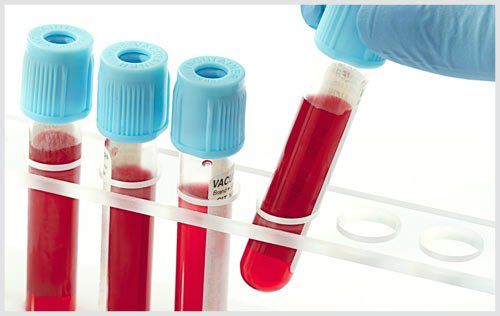
Because irritable bowel syndrome is a diagnosis of exclusion, the diagnostic test is also a test to exclude other conditions with the history taken to reach a final conclusion for irritable bowel syndrome:
3.1. Laboratory Testing Complete blood count to screen for anemia, inflammation Metabolic test to comprehensively evaluate metabolic disorders and rule out dehydration/electrolyte status in patients with diarrhea. Rule out gastrointestinal bleeding with fecal occult blood test Stool test for Giardia antigens: look for eggs and parasites. Microbiological testing, stool examination for intestinal pathogenic microorganisms, white blood cells, and Clostridium difficile toxins. Thyroid function test (depending on the patient): screening for hyperthyroidism or hypothyroidism. Serum calcium test: screening for hyperparathyroidism. Tests are not specific for inflammation: erythrocyte sedimentation rate or CRP. Serological tests or small bowel biopsy to screen for celiac disease, especially in diarrhea-predominant irritable bowel syndrome. Breath H2 test to rule out bacterial overgrowth in patients with diarrhea. 3.2. Imaging based on history Gastroenterology: screening for tumors, inflammation, obstruction and Crohn's disease. Dual-contrast colonoscopy: screening for tumor and inflammation. Gallbladder ultrasound: when the patient has recurrent dyspepsia or characteristic postprandial pain. Abdominal CT scan: screening for tumors, obstruction, and pancreatic disease. 3.3. Other tests Follow a lactose-free diet for 1 week, in combination with lactate supplementation. If the condition improves, the patient has lactose intolerance, although the history and response to this test may not be completely reliable. Therefore, some gastroenterologists often order a breath test for hydrogen (H2). Similarly, fructose intolerance should also be considered. Indication for 48-hour fasting: continued diarrhea indicates a cause for increased secretions. Anal manometry may reveal a spasmodic response to rectal distention or other problems. 3.4. Perform diagnostic procedure Flexible sigmoidoscopy (sigmoidoscopy) in patients with irritable bowel syndrome to identify distal inflammation or obstruction. Gastroduodenal endoscopy with biopsy may be indicated for patients with persistent gastrointestinal disturbances, weight loss, malabsorption symptoms, or if celiac disease is suspected. warning signs such as: bleeding, anemia, chronic diarrhea, older age, history of colon polyps, family history of cancer, weight loss or loss of appetite.
Please dial HOTLINE for more information or register for an appointment HERE. Download MyVinmec app to make appointments faster and to manage your bookings easily.




